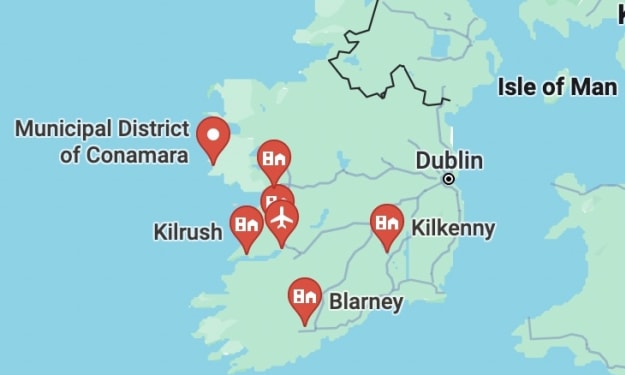Revolutions Education
A Powerful Tool of Virtual Reality in Learning

In recent years, virtual reality (VR) technology has emerged as a potent tool with the potential to revolutionize education. By immersing students in realistic, interactive environments, VR offers a unique and engaging learning experience that transcend the traditional classroom boundaries. The various applications of virtual reality in education and the benefits it brings to students and educators will be explored in this article.
Understandings Virtual Reality in Education:
Virtual reality refers to the using of computer technology to create simulated environments that users can interact with and explore. In the context of education, VR allows students to experience concepts and scenarios that may be difficult, expensive, or even imposing to replicate in the real world. By putting students at the center of learning experience, VR promotes activists engagement, critical thinking, and experiential learning.
Applications of Virtual Reality in Educationalization:
Immersing Learn Environments:
VR enables students to explore immersive 3D environments that bring abstract concepts to life. Whether it is exploring the surfaces of Mars, diving into the depths of the ocean, or traveling back in time to ancient civilizations, VR provides an unpresented level of immersion that enhances learning and retention.
Hands-On Experiments and Simulations:
VR simulations allow students to conduct hands-on experiments and simulations in a safe and controlling environment. From chemical experimentations to engineering simulations, VR enables students to practice skills and experimentation with concepts without the need for expensive equipment or materials.
Virtual Field Trip:
With VR, classrooms can virtually visit destinations around the world without ever leaving the school. Whether it is touring famous landmarks, exploring ecosystems, or visiting historical sites, virtual field trips provide students with enriching experiences that expand their horizons and deepen their understanding of the world.
Interactive Learning Activities:
VR offers a massive range of interactive learning activities, such as puzzles, quizzes, and simulations, that engage students in actively learning. By gamifying the learning experience, VR encourages exploration, problems-solving, and collaborations, making learning more enjoyable and effective.
Accessibility and Inclusive:
Virtual reality has the potential to make education more accessible and inclusive for students with diverse learning needs. VR can accommodate different learning styles, preferences, and abilities, allowing students to customize their learning experience and access resources that may not be available in traditional classrooms.
Benefitting of Virtual Reality in Education:
Increased Engagements and Motivational:
VR captivates students' attentions and stimulates their curiosities, leading to increased engagements and motivations to learning. By making learning fun and interactive, VR inspires students to explore and discover new concepts independently.
Enhancing Retention and Understandings:
The immersive nature of VR facilitates deeper learning and retainment of information. By providing multisensory experiences and spatial context, VR helps students develop a deeper understanding of complex concepts and retain information more effectively.
Real-World Application:
VR allows students to apply theoretical knowledge to real-world scenarios, preparing them for future careers and practical problem-solving. By simulating real-life situations, VR bridges the gap between theory and practice, helping students develop practical skills and competences.
Personalization Learning Experiences:
VR can adapt to individual learning needs and preferences, providing personalized learning experiences tailored to each student's paces and levels of understanding. By offering adaptive feedback and scaffoldings, VR supports students at their own pace, promoting mastery learning and academic successes.
Global Collaboratives and Connectivity:
VR enables students to connect and collaborate with peers and experts from around the world, breaking the geographical barriers and fostering global collaborations. By facilitating virtual classrooms and collaborative projects, VR cultivates cross-cultural understandings and prepares students for an interconnected world.
Challenge and Considerations:
While virtual reality holds immense promises for education, there are also challenges and considerations to be aware of. These include:
Costs and Accessibilities: VR technology can be expensive to implement, and not every school has the access to the necessary equipment and resources.
Technical Limitingness: VR hardware and software may have technical limitations, such as limited battery life, resolution, or processing power, which can affect the quality of the VR experiencing.
Content Quality and Curricular Integration: Developments high-quality VR content that aligns with curriculum standards and learning objectives can be time-consuming and resource-intensive.
Ethical and Safeties Concerns: Educators must consider ethical and safety concerns related to VR, such as privacy, data securities, and potential negativity effects on health and well-being.
Training and Supporting: Teachers and educators may require training and support to effectively integrate VR into their teaching practices and maximize its potentials for student learnings.
Conclusions:
Virtual reality has the potential to transform education by providing immersive, interactive, and personalized learning experiences that engages students and enhances learning outcomes. By leveraging VR technology, educators can create dynamic learning environments that inspire curiosities, fostering creativity, and preparing students for success in the 21st century. While challenges exist, the benefits of VR in education are undeniable, and the impacts on the futures of learning promises to be profound. As VR technology continues to evolve and become more accessible, the potential for innovations and transformation in education are endless.
About the Creator
Onyishi Chetachi Victor
Writer & Wordsmith
📚 Exploring Worlds through Words | 🖋️ Crafting Stories | ✨ Shaping Imagination






Comments
Onyishi Chetachi Victor is not accepting comments at the moment
Want to show your support? Send them a one-off tip.